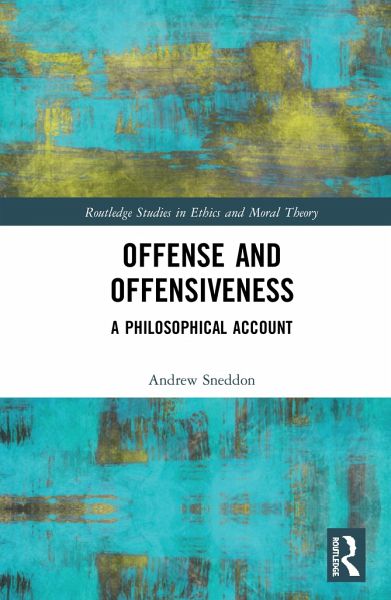
Offense and Offensiveness
A Philosophical Account
Versandkostenfrei!
Versandfertig in 1-2 Wochen
185,99 €
inkl. MwSt.
Weitere Ausgaben:

PAYBACK Punkte
93 °P sammeln!
This book offers a comprehensive study of the nature and significance of offense and offensiveness. It incorporates insights from moral philosophy and moral psychology to rationally reconstruct our ordinary ideas and assumptions about these notions. When someone claims that something is offensive, others are supposed to listen. Why? What is it for something to be offensive? Likewise, it's supposed to matter if someone claims to have been offended. Is this correct? In this book, Andrew Sneddon argues that we should think of offense as a moralized bad feeling. He explains offensiveness in terms ...
This book offers a comprehensive study of the nature and significance of offense and offensiveness. It incorporates insights from moral philosophy and moral psychology to rationally reconstruct our ordinary ideas and assumptions about these notions. When someone claims that something is offensive, others are supposed to listen. Why? What is it for something to be offensive? Likewise, it's supposed to matter if someone claims to have been offended. Is this correct? In this book, Andrew Sneddon argues that we should think of offense as a moralized bad feeling. He explains offensiveness in terms of symbolic value. We tend to give claims of both offense and offensiveness more credence than they deserve. While it is in principle possible for there to be genuine moral problems of offense and offensiveness, we should expect such problems to be rare. Offense and Offensiveness: A Philosophical Account will be of interest to scholars and students working in moral philosophy and moral psychology.













